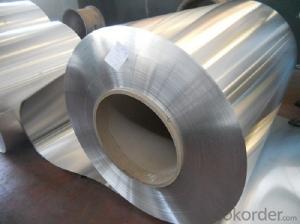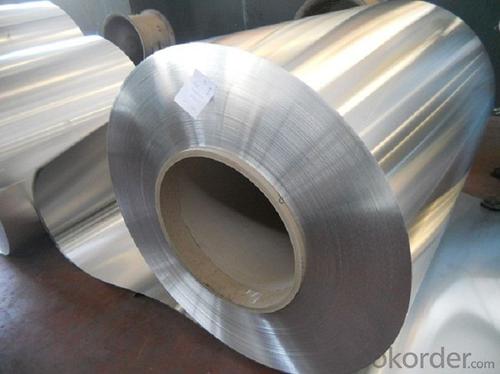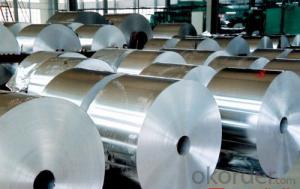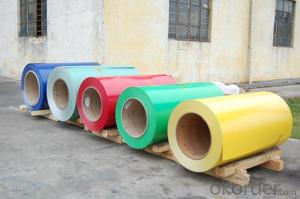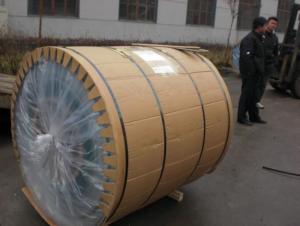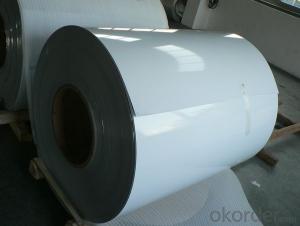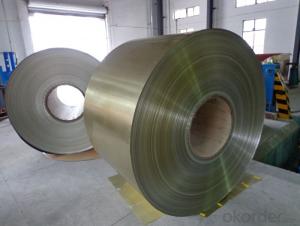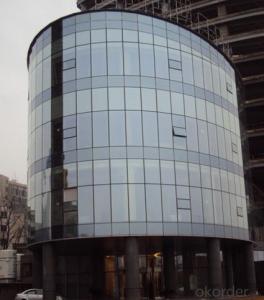040 X 2 Aluminum Coil Stock for Cold Rolled Aluminium Coils for Curtain Wall
- Loading Port:
- Shanghai
- Payment Terms:
- TT OR LC
- Min Order Qty:
- 2.5
- Supply Capability:
- 5000 m.t./month
OKorder Service Pledge
OKorder Financial Service
You Might Also Like
Specification
Cold Rolled Aluminium Coils for Curtain Wall
l Description
1) Alloy: 1050, 1060, 1100, 3003, 3004, 3005, 3105, 5005, 5052, 5083, 5754
2) Temper: Various status
3) Thickness: 0.3-150mm
4) Width: 300-1950mm
5) Length: Under 9500mm/ Coil
6) Weight: 2.5-5.0 tons per coil
7) Dimensions and weight can be produced according to clients' specifications.
8) Inner Diameter: 505mm, 605mm
9) Packing: Export standard, wooden pallet.
10) Delivery time: 20 days
11) Minimum order quantity: 2.5 tons per size.
12) The term of payment: T/T, irrevocable L/C at sight.
13) Surface: Bright
14)Origin: China
l Packaging & Delivery
Packaging detail: wooden pallets that are suitable for long distance exporting
Delivery detail: 25-30 days after receiving L/C or payment in advance
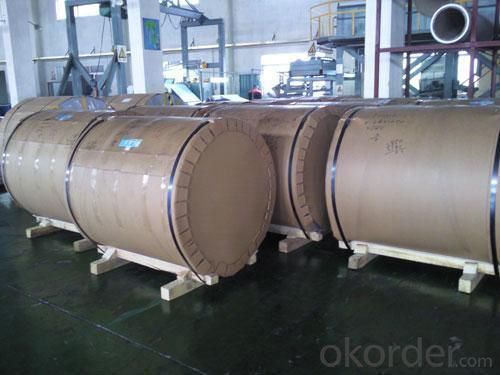
l Company Profile
CNBM International Corporation, China National Building Materials (Group) Corporation, is one of the largest companies in China building material & equipment industry, with 42,800 employees and sales in 2005 of US Dollar 4.395 billion. In 2006, China National Building Material Company Limited was listed on Hong Kong Stock Market with the stock code as 3323. Aluminium coil is a popular product in CNBM. With best quality and service, we have won reputation around the world.. |
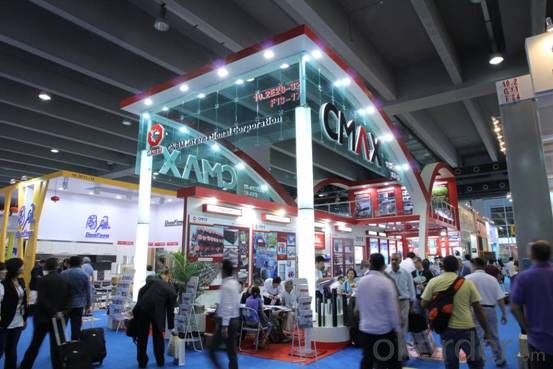
l CNBM World Wide
l Product Images
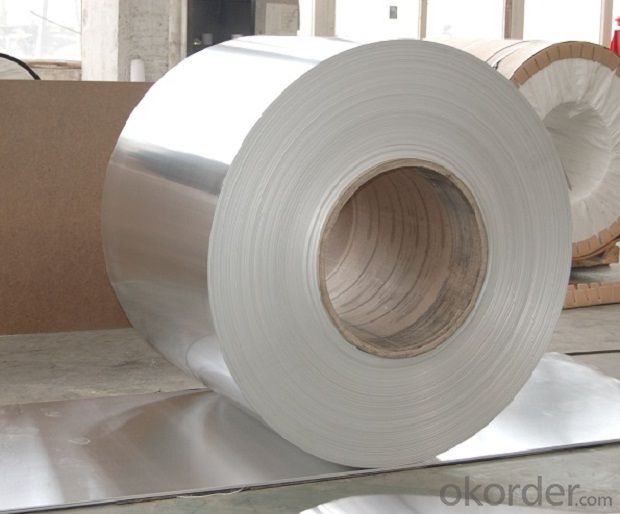
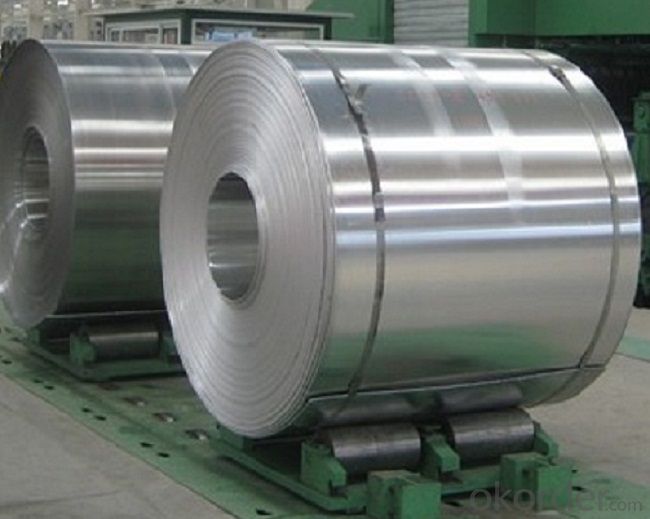
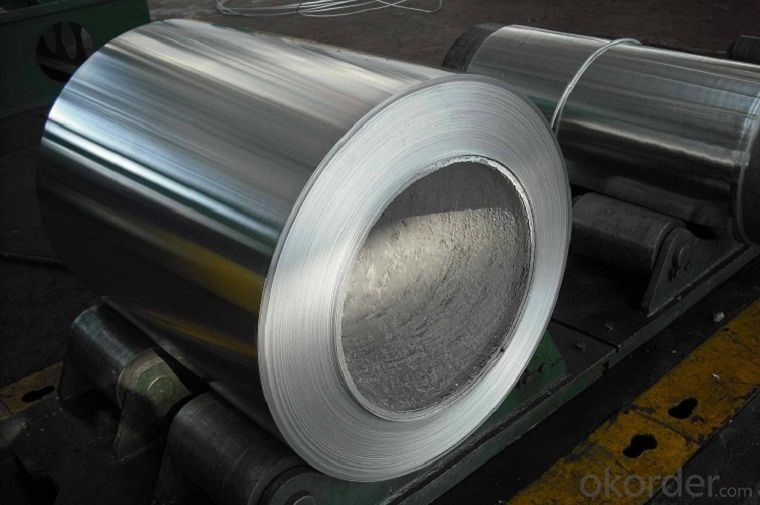
l Certificates
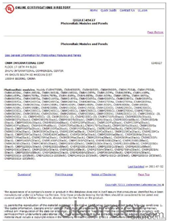
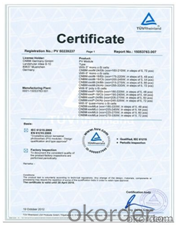
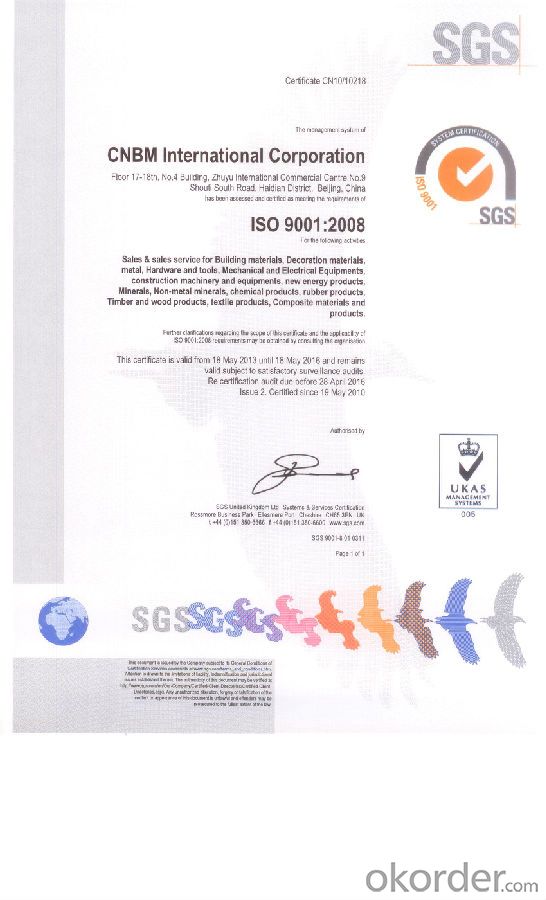
l FAQ
Q: Do you provide free samples?
A: Yes, free samples will be sent to you on freight at destination.
Q: Can I get your latest products catalogue?
A: Yes, it will be sent to you in no time
Q: What is the MOQ?
A: 2.5 tons
Q: What are your payment terms?
A: We accept L/C, T/T.
- Q: Can aluminum coils be used in the production of household appliances?
- Yes, aluminum coils can be used in the production of household appliances. Aluminum is a lightweight and durable material that has excellent thermal conductivity, making it ideal for applications in appliances such as refrigerators, air conditioners, and heat pumps. Aluminum coils are commonly used in the condenser and evaporator coils of these appliances, where they help transfer heat efficiently. Additionally, aluminum coils are resistant to corrosion, which is important for ensuring the longevity and performance of household appliances. Overall, aluminum coils are a popular choice in the production of household appliances due to their properties and benefits.
- Q: How are aluminum coils protected against moisture?
- To safeguard aluminum coils against moisture, a process known as coating is employed. A shielding layer of protective material, such as polymer or paint, is applied to the coils, creating a barrier between the aluminum and its surroundings. This coating effectively obstructs direct contact between moisture and the aluminum surface, mitigating the chances of corrosion and harm. Moreover, certain manufacturers may choose to augment moisture resistance by applying a specialized sealant on the coil edges. Through these protective measures, the durability of aluminum coils is maintained, enabling them to function optimally even in environments characterized by humidity or dampness.
- Q: How do aluminum coils contribute to architectural design flexibility?
- Aluminum coils contribute significantly to architectural design flexibility due to their unique properties and versatility. Firstly, aluminum coils are lightweight, which makes them easier to handle and install compared to other materials like steel or concrete. This characteristic allows architects to explore more creative and innovative designs without worrying about the weight limitations. It also enables the construction of large and complex structures, providing architects with greater freedom in their designs. Secondly, aluminum coils offer a wide range of surface finishes and colors. They can be painted, anodized, or coated with various materials, allowing architects to achieve desired aesthetic effects and match the building's appearance with its surroundings or the intended architectural style. This wide range of finishes enables architects to experiment with different visual effects, textures, and patterns, thereby enhancing the overall design flexibility. Furthermore, aluminum coils possess excellent corrosion resistance properties. This durability ensures that the architectural elements made from aluminum coils can withstand harsh weather conditions, such as rain, snow, or UV radiation, without deteriorating over time. This enhanced lifespan and low maintenance requirement make aluminum coils an attractive choice for architects seeking long-lasting and sustainable design solutions. Additionally, aluminum coils can be easily formed, bent, or shaped into various profiles and dimensions. This malleability allows architects to create customized architectural elements that fit specific design requirements, such as curved facades, intricate detailing, or irregular shapes. The ability to shape aluminum coils according to the architects' vision enables the realization of unique and distinctive designs that stand out in the architectural landscape. Lastly, aluminum coils are recyclable and environmentally friendly. The use of aluminum in architectural design aligns with sustainable practices, as it can be recycled repeatedly without losing its properties. This aspect appeals to architects and clients who prioritize eco-friendly design solutions and wish to reduce their carbon footprint. In conclusion, aluminum coils contribute significantly to architectural design flexibility by offering lightweight construction, a wide range of surface finishes, excellent corrosion resistance, malleability, and recyclability. These characteristics empower architects to push the boundaries of design, create visually stunning structures, and deliver sustainable and long-lasting architectural solutions.
- Q: Can aluminum coils be used in the production of cryogenic storage tanks?
- Yes, aluminum coils can be used in the production of cryogenic storage tanks. Aluminum is a suitable material for cryogenic applications due to its low density, high thermal conductivity, and excellent corrosion resistance. These properties make it ideal for storing and transporting cryogenic liquids such as liquid nitrogen, oxygen, and argon. Aluminum coils can be used to fabricate the inner shell of the storage tank, providing a lightweight and durable solution. Additionally, aluminum is easily formable, allowing for the creation of complex tank shapes and designs. However, it is important to note that aluminum has a higher coefficient of thermal expansion compared to other materials like stainless steel, so proper design considerations must be taken to accommodate for thermal contraction and expansion during cryogenic operations.
- Q: Can aluminum coils be used in the production of cans?
- Yes, aluminum coils can be used in the production of cans. Aluminum is widely used in the manufacturing of cans due to its excellent properties such as lightweight, durability, and corrosion resistance. In the production process, aluminum coils are typically formed into sheets and then cut into the desired size and shape of the can. These sheets are then coated, printed, and formed into cans using various techniques. The use of aluminum coils ensures the production of high-quality cans that are suitable for packaging various beverages and food products.
- Q: Are aluminum coils resistant to UV rays?
- Yes, aluminum coils are resistant to UV rays.
- Q: Roll presented above 1 complete circles are brineling put on work roll after the new rolling, less than 12 volumes in the aluminum surface will be presented in the corresponding position of a straight roller, a roller indentation in the above, check the work roll above a pit. Replace the upper support roll for only a few days. Want to know what's going on?Should not be bearing problems, because the bearings have been used for almost 4 years, it should not be bearing problems, and now they are suspected of bending cylinder seal problems, oil seepage phenomenon.
- For a few days and roll crushed?Whether or not the work roll tilt and the positive and negative camber of the roll are controlled, the work roll is running abnormally, and the backup roller is rubbed.
- Q: im melting aluminum and what should i use for metal. cans will just oxygenize( i forget the word for it sorry)
- aluminum, in general, will just oxidize if heated in air. it is not just cans that behave that way when they (alcan, alcoa) smelt aluminum industrially they keep it in a reducing environment and do not allow molten aluminum to contact air. so use any aluminum you like but prevent it from contacting air.
- Q: How are aluminum coils stored and transported?
- Aluminum coils are typically stored and transported in a way that ensures their safety and minimizes damage. These coils are usually stored in a warehouse or storage facility, where they are protected from the elements and other potential hazards. The coils are often neatly stacked in a secure manner, with appropriate padding or spacers to prevent any movement or potential damage. When it comes to transportation, aluminum coils are usually transported using flatbed trucks or shipping containers. These vehicles are equipped with secure tie-downs and restraints to prevent any shifting or damage during transit. It is important to ensure that the coils are properly secured to prevent any accidents or mishaps. Additionally, some precautions are taken during transportation to protect the aluminum coils from any potential damage. For instance, the coils may be covered with protective materials, such as plastic or fabric, to prevent scratches or dents. In some cases, the coils may also be wrapped with stretch film or strapped with bands to provide additional protection. Overall, the storage and transportation of aluminum coils require careful handling and adherence to safety protocols. This ensures that the coils remain in optimal condition and are delivered to their destination without any issues.
- Q: How are aluminum coils used in the manufacturing of signage?
- Due to their numerous advantageous properties, aluminum coils find extensive use in the production of signage. These coils are commonly crafted from high-quality aluminum alloy, which offers exceptional resistance to corrosion and durability, making them an ideal choice for outdoor applications. The initial step in utilizing aluminum coils for signage manufacturing involves the process of coil slitting. This process entails cutting the large aluminum coils into smaller, more manageable sizes that can be effortlessly shaped and formed to meet specific design requisites. By undergoing this slitting process, the coils are ensured to possess the appropriate width and thickness for the desired signage application. Once the coils are suitably sized, they are typically fed into a roll-forming machine. This machine enables the precise shaping of the aluminum coils into the desired signage profiles, such as flat panels, letters, or channel letters. The adaptability of aluminum permits the creation of intricate and personalized designs with ease. Aluminum provides great versatility when it comes to finishing options. The coils can be coated with various protective finishes, such as polyester or PVDF coatings, which bestow enhanced durability and resistance to fading, chipping, or peeling. Additionally, these finishes offer a broad spectrum of color choices, allowing signage manufacturers to fabricate visually captivating and vibrant displays. Furthermore, aluminum coils possess the advantage of being lightweight, thereby facilitating ease of handling during the fabrication process and reducing transportation costs. The lightweight nature of these coils also renders them suitable for mounting on diverse surfaces, including walls, poles, or freestanding structures. To summarize, aluminum coils play an indispensable role in the manufacturing of signage by providing a lightweight, versatile, corrosion-resistant, and durable material. Their ability to be effortlessly shaped and formed enables the creation of tailor-made designs, and their protective finishes guarantee signage displays that are long-lasting and visually striking.
Send your message to us
040 X 2 Aluminum Coil Stock for Cold Rolled Aluminium Coils for Curtain Wall
- Loading Port:
- Shanghai
- Payment Terms:
- TT OR LC
- Min Order Qty:
- 2.5
- Supply Capability:
- 5000 m.t./month
OKorder Service Pledge
OKorder Financial Service
Similar products
Hot products
Hot Searches
Related keywords
